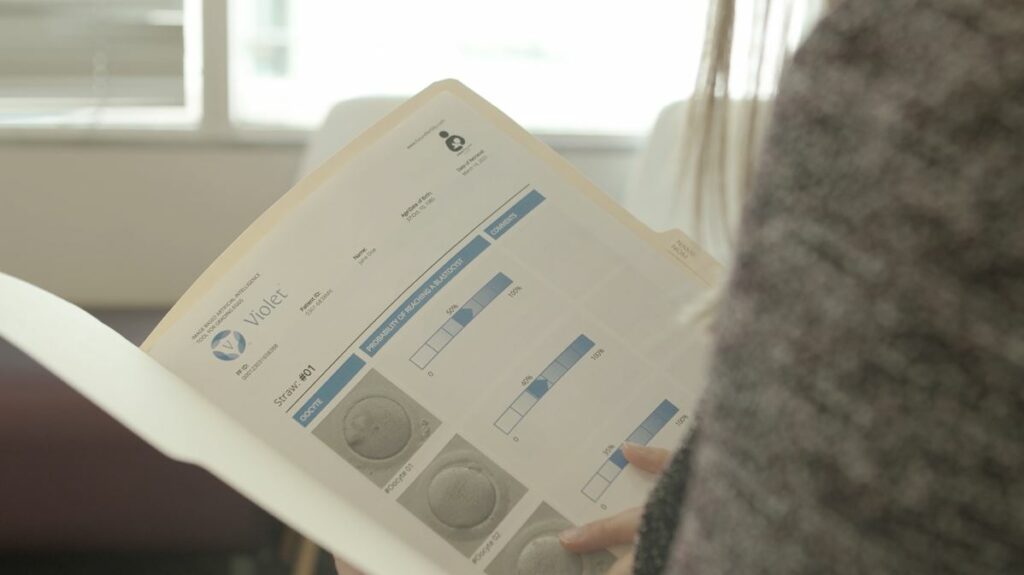A recent BBC article discusses the lack of transparency around egg freezing success rates,
but we believe there is more to the story…
Egg freezing is a rapidly growing trend around the world, with more and more women opting to either delay motherhood or create an option for this to happen in the future if their personal circumstances have not yet given them the opportunity to become mothers. Egg freezing is often touted as the key to this, offering a sense of freedom and empowerment.
For instance, in order to use the eggs, a patient will be required to go through the IVF process (including thawing eggs, adding sperm, creating and testing embryos and transferring), which is costly and often something not considered by patients who elect to freeze their eggs. Further to this, IVF is not a guarantee, with average success rates around 30% per cycle (a figure that is highly dependent on age and other clinical factors).

To date there is no known medical intervention to slow down or reverse age-related decline in egg quality and quantity, and egg freezing is the best option to preserve future fertility potential. However, beneath the surface, there are nuances that are not well understood and are difficult for clinics to appropriately and accurately communicate to patients.
In order for the egg freezing process to be the empowering safety net that it is often marketed as, it is crucial for individuals to have realistic expectations. More specifically, this includes understanding the likelihood of success, how success can vary from person to person, and the downstream effects and costs for a person who has frozen their eggs.
As the recent BBC article highlights, likelihood of success from egg freezing is the biggest and most difficult expectation to manage. This is in part driven by thaw success rates, which the article highlights can vary from clinic to clinic and is often not transparent to patients. But an even more important variable to consider is the impact of egg quality. Egg quality can vary drastically from person to person, and even cycle to cycle — no two people will have the exact same success rates.
In light of these dynamics, expectations management is a critical part of the process that is, in general, not sufficiently addressed in the egg freezing process – however this is not necessarily for lack of effort.
Clinics that do attempt to provide estimates of success do so based on demographics (age, number of eggs frozen) and clinical factors that can estimate likelihood of success, but they do not accurately or objectively consider the actual quality of the eggs frozen, due to a lack of tools to measure this.
Many efforts have been made to assess egg quality, including evaluating oocyte morphology, and all have been largely unsuccessful. Even the most experienced embryologists are unable to objectively assess egg quality. This leaves clinicians and other care providers with a huge information gap in being able to sufficiently manage expectations.
This is precisely where our company steps in. It is our belief that clinicians and clinics are not intentionally misleading patients — there is simply a lack of readily available tools to help manage expectations.

VIOLET™ reports provide you with each egg’s probability of becoming a blastocyst and a personalized prediction of your overall chance of live birth.
Our software leverages AI to identify insights about the oocyte that the human eye cannot decipher, creating the worlds’ first commercially available egg scoring system. We work with clinics all over the world to help bring these insights to egg freezing patients and their clinicians. We believe that by filling this gap – helping patients objectively understand their chance of success based on the eggs retrieved – patients can leave the process feeling informed, supported and empowered to act on the information as they consider their path to parenthood.
We believe strongly in the role of social egg freezing as a critical part of the reproductive health journey, and we believe that REIs and clinics genuinely want to provide accurate information, but they have lacked the tools to do so effectively. We firmly believe that information is power, and by providing patients and physicians with the tools to objectively assess their chances of success based on the quality of eggs retrieved, we hope to foster an improved culture of transparency and trust in the process.
You Might Also Like …
Join our mailing list for dispatches on the future of fertility

